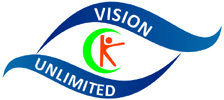Online assessment serves as a vital tool to gauge cognitive abilities and evaluate learning outcomes following educational events, such as the conclusion of instructional units or chapters.

Traditional Assessments:
• These assessments resemble traditional pen-and-paper tests but are conducted online. They include multiple-choice questions, short-answer questions, and essay questions.
• Features: Immediate scoring, automated grading, flexibility in question types.
Formative Assessments:
• Formative assessments are conducted during the learning process to monitor student progress and provide ongoing feedback.
• Features: Quick feedback, adaptability, insights into student understanding.
Summative Assessments:
• These assessments evaluate student learning outcomes at the end of a course or instructional unit.
• Features: Comprehensive evaluation, measurement of overall learning, grading against predefined standards.
Performance-Based Assessments:
• Performance-based assessments measure practical abilities and skills rather than just knowledge recall.
• Features: Authentic tasks, demonstration of real-world skills, opportunity for hands-on learning.
Portfolio Assessments:
• Portfolios showcase a collection of student work over a period of time, demonstrating learning progression and achievement.
• Features: Long-term assessment, holistic view of student performance, reflection on learning journey.
Assessment plays a crucial role in online teaching by determining the effectiveness of learning experiences, identifying areas for improvement, and ensuring learning objectives are met. It serves as a foundational element in the design and delivery of online courses, facilitating continuous improvement and enhancing the overall learning experience.


